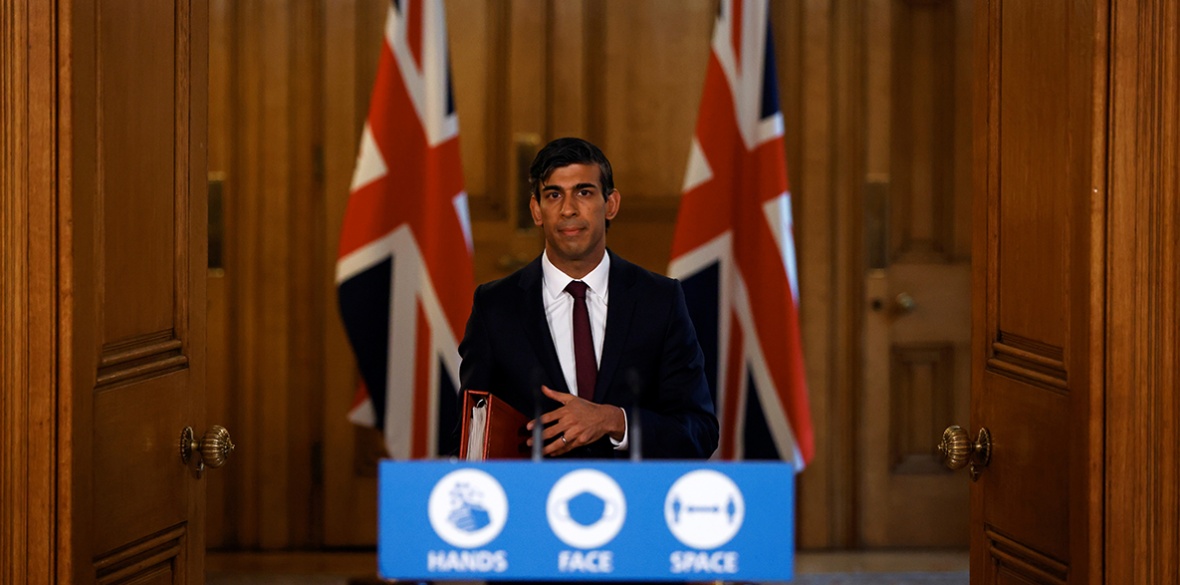WHEN Rishi Sunak warns of hard times coming, he is not reprising Woody Guthrie’s musical evocation of the 1930s Depression which signalled the collapse of the capitalist world.
He is preparing us for some nasty shocks to the system.
Putting off an autumn financial statement is just about the most prudent thing a Tory money-man can do when troubled with the kind of problems which face this government.
Britain’s gross domestic product — a rough measure of economic activity — is down 20.4 per cent.
This is a deep recession. As the gifted number-crunchers at the Office for National Statistics suggest, this is the biggest quarterly decline since this measure of the economy was introduced.
As the first furlough scheme ends and workers face a sudden plunge into the even greater poverty that life on the dole normally brings, others contemplate a part-time employment subsidy package that gives employers a perverse incentive to sack people.
Labour’s shadow chancellor Anneliese Dodds was on the button when she said that Britain has the worst excess death rate and is on course for the worst recession in Europe.
But she needs to avoid giving the impression that Labour thinks this crisis is entirely a function of the coronavirus pandemic.
The system itself is in deep trouble with runaway stock market speculation in the US and a distorted economy in which City speculation is favoured more than productive investment.
These are tendencies which are exacerbated by the narrowed options available for capital in an economic downturn and every measure adopted by big business and the banks favours their priorities rather than those of society as a whole or of working people.
The coronavirus serves to intensify and illuminate the systemic nature of the capitalist crisis. It does not explain it in totality.
This crisis is throwing up all manner of paradoxes. The big-business CBI soft pedals on its anxieties about government spending now that big chunks of it come its way.
The government can manage massive wage subsidies for some time because the long-term cost of government borrowing is at a historic low and remains so while finance ministers throughout the Covid-blighted capitalist world pump public cash into ailing economies.
The magic money tree which Tory ideologues said was the illusory basis for John McDonnell’s spending plans suddenly turns out to be flourishing in the back garden of No 11 Downing Street.
Both the instincts — and the developed ideology — of our ruling class predispose them to shift the burden of solving this particular capitalist crisis on the back of working people.
Thus we can see a whole series of class battles marshalled on the near horizon.
There is the rolling tide of evictions that will inevitably follow the lifting of the moratorium.
At a community level, the working-class movement must prepare itself for an active and physical resistance to evictions.
There is a long tradition of this in working-class areas and people must be prepared for collective action in defence of individual families faced by forced homelessness.
The key issue is jobs. And here it is not enough to rely on parliamentary manoeuvres or even the most inspired of parliamentary rhetoric.
The battle for jobs is a periodic feature of life in a world of booms and slumps and all the indicators are of a deeper slump coming our way.
In the ’30s the capitalist depression was in stark contrast to the astounding success of the Soviet Five Year plans which produced full employment.
In ’80s Britain we had a People’s Jobs campaign with massive marches and demonstrations.
We need to think in these terms once again.










